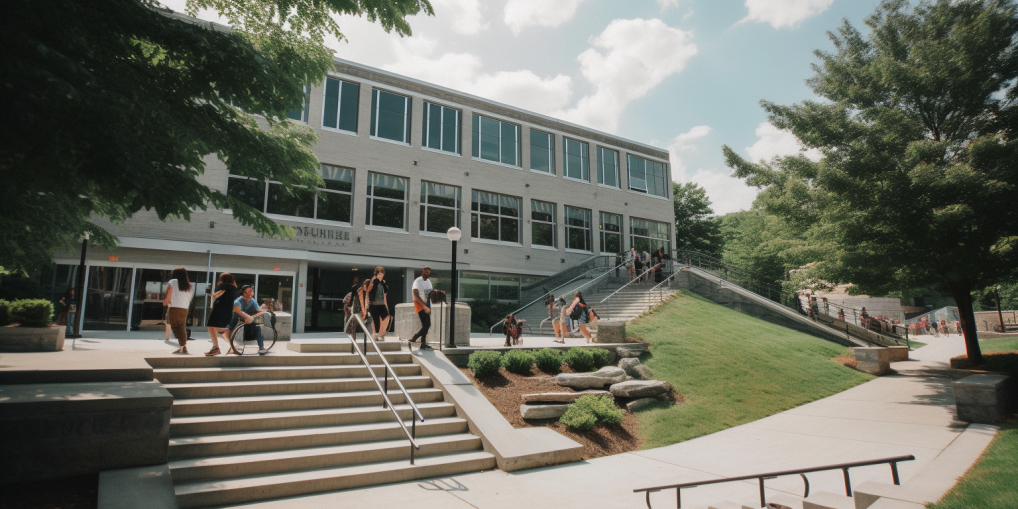
According to recent data, organic search is the primary driver of traffic for higher education websites. Therefore, it is essential for institutions to prioritize search engine optimization (SEO) strategies to boost their website’s visibility and improve their rankings in search queries.
In this article, we will explore the importance of SEO for higher education and provide steps for effectively optimizing websites to increase traffic. Conducting a thorough site analysis and audit is crucial in identifying areas that require improvement.
Additionally, creating a comprehensive list of keywords that align with the institution’s goals and optimizing content to address prospective students’ questions can greatly enhance SEO efforts.
Furthermore, staying up to date with algorithm updates is vital as SEO is a constantly evolving field. By implementing these strategies, higher education institutions can successfully drive more traffic to their websites and increase their online presence.
Key Takeaways
- Organic search is crucial for driving traffic to higher education websites.
- Thorough site analysis and audit are essential for identifying areas that need improvement in SEO.
- Creating a comprehensive list of keywords and optimizing content strategically can enhance SEO efforts.
- Staying updated with algorithm updates and adapting strategies is vital in the constantly evolving field of SEO.
Why SEO is Important

The significance of SEO in the higher education sector lies in its ability to enhance website visibility and organic search rankings, ultimately driving increased traffic to educational institutions’ websites.
With organic search being the top driver of traffic to higher education websites, it is crucial for institutions to optimize their websites for relevant search queries. This can be achieved through technical site analysis and audit, which helps identify areas for improvement.
Creating a master list of keywords that align with the institution’s goals and incorporating them strategically throughout the website is also essential. Additionally, optimizing content by answering prospective students’ questions and providing valuable information can further improve search rankings.
Utilizing tools like Google Trends and conducting competitive research can aid in developing an effective keyword strategy. It is important to note that SEO is a constantly changing field, with frequent updates to search algorithms, so it is essential for institutions to stay updated and adapt their strategies accordingly.
By implementing these tips, higher education institutions can significantly boost their SEO efforts and drive more traffic to their websites.
Steps for Effective SEO
Implementing the necessary steps for optimizing search engine rankings in the field of higher education can significantly enhance online visibility and increase the potential for attracting a larger audience of prospective students, as evidenced by the fact that organic search remains the primary driver of website traffic for institutions.
To achieve effective SEO in higher education, the following steps are essential:
- Technical site analysis and audit: Conducting a thorough analysis of the website’s technical aspects is crucial for identifying and resolving any issues that may be hindering its SEO performance.
- Keyword research and optimization: Creating a master list of relevant keywords and strategically incorporating them into the website’s content, meta tags, and URLs can improve its ranking in relevant search queries.
- Content optimization: Answering prospective students’ questions through informative and engaging content not only enhances user experience but also boosts the website’s visibility in search results.
By implementing these steps, higher education institutions can strengthen their SEO efforts and increase their chances of attracting a larger audience of prospective students.
Staying Ahead of Algorithm Updates

Staying ahead of algorithm updates is crucial in the field of search engine optimization for higher education. Search engines like Google frequently update their algorithms to improve the relevance and quality of search results. These updates can significantly impact website rankings and organic traffic.
To stay ahead, SEO professionals in higher education need to constantly monitor and adapt to these changes. They should stay informed about the latest algorithm updates and their implications on SEO strategies. This requires keeping up with industry news, attending conferences, and engaging in continuous learning.
Additionally, it is essential to regularly analyze website data, monitor keyword performance, and make necessary adjustments to optimize content for search engines. By staying proactive and responsive to algorithm updates, higher education institutions can maintain and enhance their online visibility and traffic.
Conclusion
In conclusion, implementing effective SEO strategies is imperative for higher education institutions to thrive in the digital landscape. Just as a well-constructed roadmap guides travelers to their destination, SEO guides website visitors to their desired information.
By conducting thorough site analysis, optimizing content, and staying ahead of algorithm updates, institutions can pave the way for increased website traffic and improved search rankings.
Just as a compass points north, SEO points higher education websites toward success, helping them shine like a guiding star in the vast online universe.




